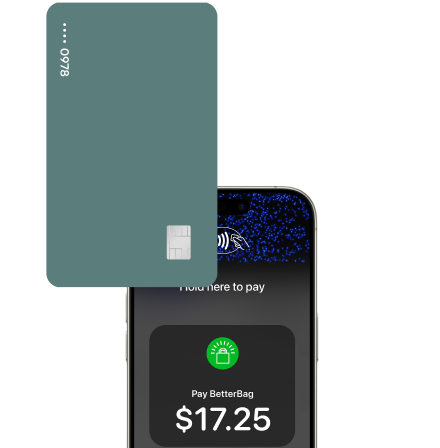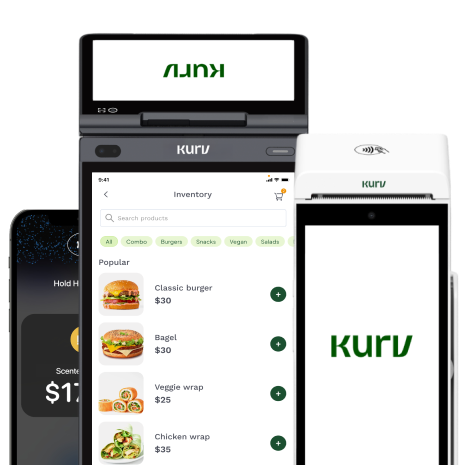With more than 40% of Americans no longer using cash for any purchases [1] Pew Research Center. “More Americans are Joining the ‘Cashless’ Economy,” Accessed August 20, 2025. , accepting credit card payments is a must for modern businesses. Fortunately, companies have a range of options available as payment processing partners. Many merchants work directly with large banks to access merchant accounts; however, this isn’t always the best option. Independent sales organizations (ISOs) also provide direct access to payment processing, and many of them offer better processing fees, more accessible access to customer support, and other benefits.
Is an ISO the best option for your business’s payment processing? This guide explores a complete picture of ISOs, how they work, how they compare to other payment stakeholders, how to become one, and other related topics. Whether you’re a business owner considering an ISO for payment processing services or an entrepreneur wanting to start an ISO, this guide is for you!
Key Takeaways
- Independent Sales Organizations (ISOs) act as intermediaries between merchants and payment processors, helping businesses access credit card processing services, merchant accounts, hardware, software, and ongoing support.
- Compared to banks, ISOs often provide greater flexibility, competitive pricing, industry-specific tools, and stronger customer support, making them an attractive option for merchants seeking tailored payment solutions.
- ISOs enable independent sales agents (ISAs) to earn commissions by acquiring merchants. Success depends on partnering with reputable ISOs that offer fair commission structures, sales support, and competitive processing fees.
- To operate as an ISO, businesses must secure sponsorship from an acquiring bank, complete certification with major card brands (Visa, Mastercard, etc.), and build robust sales and support systems to serve merchants effectively.
What is an ISO?
An independent sales organization (ISO) is a business that distributes or resells payment processing services to merchants. ISOs are like payment processing matchmakers, forging connections between merchants seeking payment processing solutions and the financial institutions that provide them. An ISO undergoes an approval process to ensure it is suitable to resell payment processing services. Once approved, it can negotiate agreements with payment processors to market its services.
While some payment processors act both as ISOs and payment processors, most ISOs don’t handle any of the backend protocols involved in settling transactions. Instead, they market payment processing services, attract merchants, onboard merchants, open merchant accounts, and provide ongoing support. Many ISOs also offer hardware and software, such as payment terminals and POS software, to help merchants increase their payment capabilities.
In exchange for their services, ISOs usually receive a percentage of the future transactions processed by the payment processor. This means many ISOs benefit from recurring revenue.
How do Independent Sales Organizations Work?
The role ISOs play in the payment ecosystem varies depending on each ISO. As long as they meet basic requirements, they have autonomy in their relationships with their merchants. However, generally speaking, most ISOs work in the following manner:
Step 1: Gain Approval
Before an ISO can begin distributing or reselling payment processing, it must gain approval from a sponsoring bank and card network. An ISO must first set up a formal business entity, such as an LLC, to gain approval.
Next, it must find a sponsoring bank — this sponsoring bank underwrites the ISO’s payments and is therefore liable for any risks associated with its payments. Once a sponsoring bank is obtained, the ISO must register with the major card networks (Visa, Mastercard, American Express, etc.). Registering with card networks usually requires an ISO to undergo suitability and financial checks and pay a registration fee.
Step 2: Build Relationships with Payment Processors (Acquiring Banks)
We have transparent pricing, frictionless onboarding, and rapid decisioning – No surprises, no stress.
Step 3: Distribute Payment Processing to Merchants
After securing agreements with payment processors, an ISO can begin selling merchant services to businesses. This process varies depending on the ISO. Many use paid advertising, cold outreach, and other sales tactics to target new merchants.
Step 4: Provide Onboarding, Including Hardware and Software
We have transparent pricing, frictionless onboarding, and rapid decisioning – No surprises, no stress.
Step 5: Provide Ongoing Support to Merchants
Lastly, the ISO’s role is to provide ongoing support to merchants. In this case, “support” encompasses troubleshooting technical issues, answering questions about payment processing services, and performing other general support functions. Considering that 96% of customers say customer support is essential in helping determine loyalty [2] Forbes. “50 Stats That Prove The Value Of Customer Experience” Accessed August 20, 2025 to a brand, providing robust merchant support is a key element in an ISO’s success.
Understanding ISO Services for Business
As a merchant accepting credit card transactions, it’s critical to understand how an ISO relates to your business. If you partner with an ISO for payment processing, the ISO is your primary connection to the world of electronic transactions. The ISO has relationships with acquiring banks. These banks handle the technical elements of the processing arrangements. The ISO distributes the acquiring banks’ services and supports your business. Let’s dive deeper into how ISOs relate to MSPs and payment processors:
ISO vs. MSP
- If you’re searching for ISOs, you might be wondering: What is an MSP? An MSP refers to a Member Service Provider. Essentially, an MSP is the same entity as an ISO; it’s just the term used by Mastercard (Visa uses ISO). So, if you ever hear these terms used interchangeably, it’s because they refer to the same type of organization.
- The acronym “MSP” refers to a “merchant service provider“—a business or individual offering merchant services and payment processing. While all ISOs are MSPs, the term includes payment processors, POS, and gateway providers.
ISO vs. Payment Processor
- A payment processor is responsible for the backend processes involved in settling payments. It authorizes and settles funds when a customer uses a credit card to purchase goods or services from a merchant.
- On the other hand, an ISO resells or distributes a payment processor’s services. An ISO is an independent salesperson for the payment processor: it markets payment processing services and communicates with potential clients who may need them. Likewise, ISOs provide ongoing merchant support to merchants who sign up for their payment processing agreements.
Benefits of Working with an ISO in Payments
If you’re a merchant seeking a payment processing partner, you may consider an ISO. While working directly with a bank to process payments is tempting, there are many reasons to choose an ISO instead. Let’s explore the key advantages:
Great Flexibility Compared to Banks
- Banks aren’t known for their flexibility. If your business partners with a bank to process payments, don’t expect industry-specific tools, custom pricing plans, or other similar benefits.
- The large banks in the payment processing world have millions of consumer and commercial relationships, and your business’s needs won’t be at the forefront of their priorities.
- When you partner with an ISO, you benefit from a closer relationship with your payment processor. While flexibility varies depending on the ISO you partner with, many go above and beyond banks regarding features, technology access, payment options, and more. For example, some ISOs work with specific industries, allowing them to provide custom payment features, industry-specific hardware, and other benefits. This includes high-risk industries, which many banks won’t partner with directly.
Competitive Pricing and Fees
- ISOs have stronger negotiating power than individual businesses because they offer banks access to multiple merchants.
- The best ISOs often receive preferable processing rates, making it easy to pass savings onto merchants.
- However, this isn’t to say that all ISOs are good value. Many don’t provide transparent pricing structures, making it easier for them to hide huge markups and other fees. Always compare multiple ISO payment processing fees before deciding which is best for your business.
More Support Availability with ISOs
- One of an ISO’s core responsibilities is providing support to merchants. Large financial institutions are notoriously slow to respond to customer requests, so working with an ISO can be a huge advantage for merchants.
- Many ISOs offer around-the-clock customer service to ensure their merchants always have technical support if something goes wrong. Likewise, as many ISOs specialize within specific sectors, they can provide industry-specific support to help merchants resolve issues quickly.
- ISOs also offer an advantage over traditional banks in onboarding and training. You’re much more likely to receive personalized onboarding if you don’t work with a large bank.
What to Consider When Choosing an Independent Sales Organization
The factors to consider when choosing an ISO vary depending on whether you’re a business owner searching for processing or an agent looking to sell merchant services to businesses:
As a Business Owner Looking for Processing
As a Business Owner Looking for Processing
Affordable, Transparent Processing Fees
ISO processing rates vary significantly from provider to provider, so compare pricing before making any commitments. Prioritize working with ISOs that offer pricing transparency, such as those specifically offering Interchange Plus pricing.
Strong Reputation
Last but not least, you must consider the ISO’s reputation. Many ISOs have poor reputations with merchants, so it’s critical to weed out which options are worth avoiding. Use online reviews, consumer watchdog groups, and other resources (such as different business owners in your network) to determine if an ISO has a trustworthy reputation.
Industry-Specific Tools
Before an ISO can begin distributing or reselling payment processing, it must gain approval from a sponsoring bank and card network. An ISO must first set up a formal business entity, such as an LLC, to gain approval.
Next, it must find a sponsoring bank — this sponsoring bank underwrites the ISO’s payments and is therefore liable for any risks associated with its payments. Once a sponsoring bank is obtained, the ISO must register with the major card networks (Visa, Mastercard, American Express, etc.). Registering with card networks usually requires an ISO to undergo suitability and financial checks and pay a registration fee.
Payment Method Flexibility
One key benefit of working with an ISO is access to features tailored to your industry. For restaurant owners, finding an ISO with hardware and POS software designed specifically for the hospitality industry is critical. Partnering with the correct ISO can help your business improve its internal operations.
Robust Support
Try to always work with ISOs that offer robust and dynamic support options, from onboarding to ongoing merchant support. Prioritizing ISOs with round-the-clock 24/7 merchant support is essential, especially for businesses that operate outside regular office hours.
As an Agent Looking to Sell Merchant Services
To become an independent sales agent (ISA), you need to find an ISO to work under. In most cases, ISAs are independent contractors, but working with a reputable ISO is still critical to ensure success. Let’s explore the factors to consider when deciding which ISO to choose:
Commission Structure
- First, it’s essential to consider what type of commission structure the ISO offers its ISAs. Do you receive a lump sum for every merchant you acquire, or does the ISO provide you with a commission on future payment processing fees? An ongoing commission on future payment process fees is a better way to generate recurring income.
Sales Support
- Next, it’s critical to determine if an ISO provides good sales support to their ISAs. Do they offer sales training? Do they provide presentations, metrics, and other valuable data for sales? While you’re an independent contractor, if you want to succeed in your new role as an ISA, it’s good to work with an ISO that will help you attract merchants.
Competitive Payment Processing Fees
- Your commission is not the only factor that matters; knowing how much your ISO will charge the merchants you acquire is essential. If the ISO’s payment processing fees are too high, selling its services to merchants will be difficult.
ISOO Reputation
- Lastly, consider the reputation of the ISO you’re planning to work with. View online reviews, reports from consumer watchdog groups, and other sources to determine the organization’s reputation. Selling merchant services is easier when you work for a reputable business.
How Do Businesses Qualify to be an ISO?
ISOs are an integral and profitable element in the payment ecosystem. With so many ISOs generating great returns, you might wonder how businesses qualify to be ISOs.
First, register your new business — you must have a legal business entity before becoming an ISO. Next, approach sponsoring banks to ask if they will sponsor your new ISO. You need a sponsoring bank to underwrite transactions; otherwise, you won’t be able to resell payment processing services. Once you obtain a sponsoring bank, you must undergo certification from the major card brands (such as Visa and Mastercard). This process involves checking your financial and personal suitability. You must also pay registration fees to each card brand.
Once you gain approval from a sponsoring bank and the major card networks, you can begin reselling payment processing services. However, it’s also essential to build a robust merchant support infrastructure. Your ISO must be able to continue supporting its merchants. Building the sales and support systems required to be a full-scale ISO can take significant time.
How to Become an ISO Agent?
An ISO agent, also known as an independent sales agent (ISA), is a payment processing salesperson who works as an independent contractor to an ISO. To become an ISA, you need to find an ISO to work under. The ISO may require you to undergo training or certifications before you can contact merchants. Once you’re an approved ISA, you can sell payment processing services to merchants for a commission. As ISAs operate under the ISO’s registration and approvals, there’s no need to make any direct agreements with sponsoring banks or card networks. Essentially, becoming an ISA is easier than starting your own ISO.
Frequently Asked Questions
What is the difference between an acquiring bank and an ISO?
An ISO (Independent Sales Organization) acts as a mediator between merchants and payment processors. It is responsible for bringing in new merchants and providing client support to merchants once they sign an agreement with a payment processor. Acquiring banks, on the other hand, are financial institutions that manage merchants’ accounts, receive transaction funds, and handle risks associated with card payments. While ISOs focus on sales and services, acquiring banks handle payment authorizations and manage merchant accounts.
Is an ISO a third-party payment processor?
No, most ISOs are not involved in authorizing or settling transactions. Instead, they act as intermediaries between merchants and payment processors. They resell or distribute payment processing to merchants and provide ongoing merchant support. An ISO is a sales organization that distributes services on behalf of a payment processor.
What is an ISO certification?
The term “ISO certification” is irrelevant to Independent Sales Organizations (ISOs) in the payment processing sphere. Instead, an ISO certification is issued by the International Organization of Standardization, an international standards board tasked with providing standards and regulations to specific industries. It’s not relevant to ISOs reselling payment processing services.


























